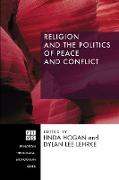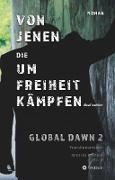Religion and the Politics of Peace and Conflict
BücherAngebote / Angebote:
Description:
The connections between religion and violence are complex and multifaceted. From the conflicts in Middle East and the Balkans to those in Southeast Asia and beyond, religion frames and legitimates political violence. Moreover, in international relations since 9/11, religious language and metaphors have acquired a new significance. In this context the emerging consensus appears to be not only that violence is intrinsic to religion, but also that religions incite, legitimate, and intensify political violence. However, such an unambiguous indictment of religions is incomplete in that it fails both to appreciate significant counter examples and to recognize the diversity that exists within religions on the issue of violence, particularly the religious roots of pacifism and the ethics of non-violence. This collection explores aspects of this ambivalence between religion and violence. It focuses on traditions of legitimation and pacifism within the three monotheistic religions: Judaism, Christianity and Islam, and concludes with an examination of this ambivalence as it unfolds in each tradition's engagement with the politics of gender.
Endorsements:
"The essays in this collection suggest that the tasks of ameliorating irrational fears and encouraging the recognition of irreducible interreligious complementarity are tasks that can and should be shared by Christianity, Judaism, and Islam. Moreover these traditions are replete with exemplars, both historical and contemporary, who witness to the possibilities for interreligious dialogue and understanding. For religious persons, undoubtedly, these issues are particularly challenging since they require us to confront the complexities and limitations of our own traditions while also responding to their often-radical demands. Yet in these complexities lie the possibilities for the religions to develop a greater sense of mutual understanding, since it is in these complexities that the commonalities between the religions on the matter of political violence are found."
--from the Introduction
About the Contributor(s):
Linda Hogan is Professor of Ecumenics at the Irish School of Ecumenics, Trinity College, Dublin.
Dylan Lee Lehrke is a PhD candidate at the Irish School of Ecumenics, Trinity College, Dublin. He also serves as Case Studies Working Group Chief of Staff for the DC-based Project on National Security Reform.
Folgt in ca. 10 Arbeitstagen




